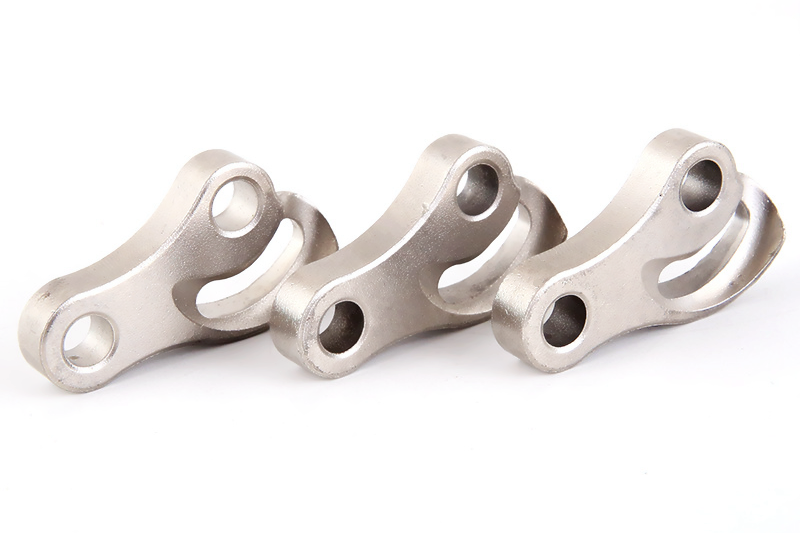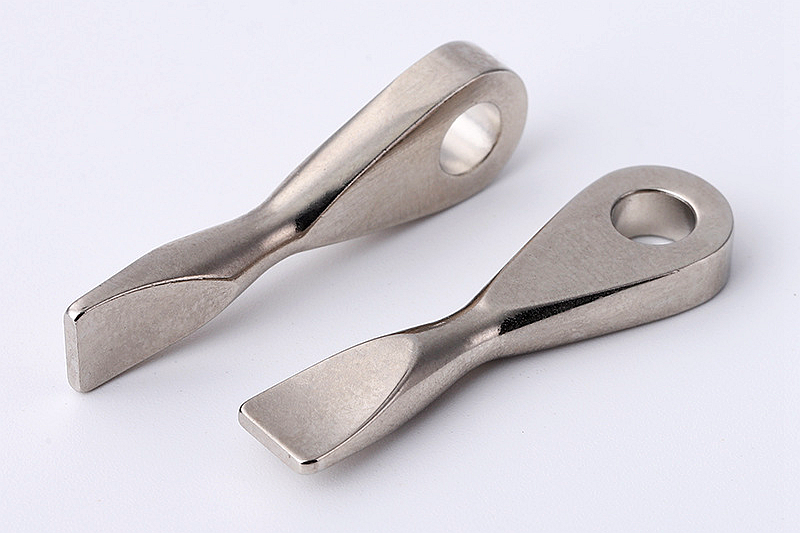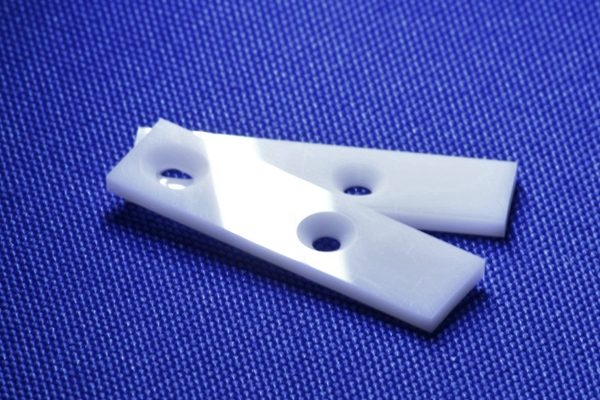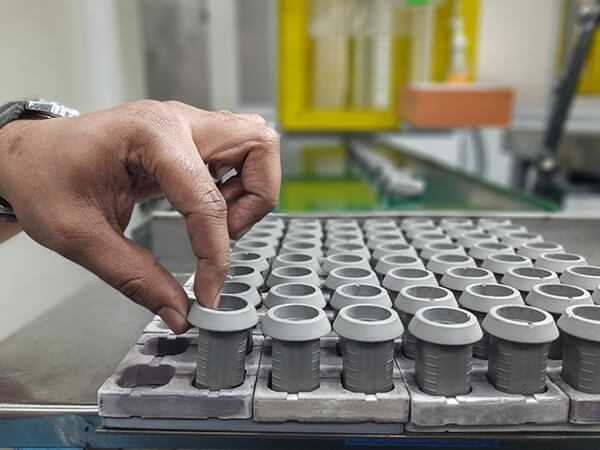Componentes mecânicos de precisão para ferramentas de alto desempenho
Na manufatura industrial moderna, a confiabilidade das ferramentas de alto desempenho depende diretamente da qualidade de fabricação de seus componentes mecânicos internos de alta precisão. Como equipe de engenharia da Neway, entendemos que a precisão de cada engrenagem e de cada eixo de transmissão afeta diretamente a eficiência da ferramenta e sua vida útil. Desde ferramentas elétricas profissionais até equipamentos de montagem de alta precisão, somos dedicados a fornecer soluções de componentes de precisão da mais alta qualidade para fabricantes de ferramentas.
Principais Processos de Fabricação para Componentes de Precisão em Ferramentas de Alto Desempenho
Usinagem de Precisão de Sistemas de Transmissão
Nos sistemas de transmissão de ferramentas de alto desempenho, a precisão de usinagem dos componentes determina a eficiência e a estabilidade da transmissão de potência. Utilizamos serviços de prototipagem em usinagem CNC para fabricar engrenagens de precisão e eixos de transmissão, atingindo controle dimensional em nível micrométrico com o uso de centros de usinagem de cinco eixos. Cada perfil de dente de engrenagem é cuidadosamente projetado e otimizado para apresentar um perfil involuto, garantindo transmissão suave e baixo ruído. Damos ênfase especial ao balanceamento dinâmico, utilizando processos de torneamento e retificação de alta precisão para controlar o desbalanceamento residual dentro de 0,5 g·mm, o que é crucial para ferramentas rotativas de alta velocidade. Após a usinagem de precisão, os componentes passam por rigorosos processos de tratamento térmico para melhorar suas propriedades mecânicas. Adotamos tecnologia de tratamento térmico em atmosfera controlada para evitar oxidação e descarbonetação durante a têmpera, preservando o acabamento superficial e a estabilidade dimensional.
Tecnologias de Conformação para Componentes Estruturais Complexos
Para componentes com geometrias internas complexas, utilizamos serviços de moldagem por injeção de metal (MIM) para alcançar conformação quase líquida em uma única etapa. Este processo é particularmente adequado para peças com canais de óleo intrincados e furos não padronizados, como carcaças de motores pneumáticos para ferramentas. Por meio de formulação precisa da mistura de pó e processos de debinding e sinterização, obtemos peças com densidade relativa superior a 98%, oferecendo propriedades mecânicas comparáveis às de peças forjadas. Com a crescente importância do design leve, também adotamos tecnologia de fundição sob pressão de alumínio para produzir carcaças e suportes. Utilizando fundição sob alta pressão e reforço localizado por squeeze, garantimos que, embora os componentes sejam leves, as áreas críticas mantenham resistência e rigidez suficientes. Após usinagem de precisão, esses componentes fundidos podem ser usados diretamente como elementos estruturais finais, simplificando significativamente o processo de montagem.
Fabricação de Componentes Funcionais Especializados
Para componentes funcionais especializados em ferramentas dedicadas, utilizamos serviços de moldagem por prensagem de pó para produzir peças de alta dureza, corte e resistência ao desgaste. Esse processo permite controle preciso da composição do material, especialmente para ligas duras e outros materiais de difícil usinagem. Por meio de formulações otimizadas de pó e processos de sinterização, nossas ferramentas de corte alcançam microestruturas uniformes e excelente resistência ao desgaste. Para componentes com requisitos funcionais especiais, como limitadores de torque e embreagens centrífugas, confiamos em projetos de moldes precisos e controle de processo para garantir que cada peça cumpra exatamente sua função prevista. Esses componentes especializados passam por rigorosos testes de desempenho para garantir operação confiável durante toda a vida útil da ferramenta.
Tecnologias de Tratamento de Superfície para Melhorar o Desempenho dos Componentes
Na fabricação de componentes mecânicos de precisão, os processos de tratamento de superfície desempenham um papel crucial na determinação da durabilidade do produto. Nossa tecnologia de nitretação forma uma camada densa de nitretos na superfície do componente, com dureza superior a HV1000, preservando a tenacidade do material base. Este tratamento é particularmente adequado para engrenagens, rolamentos e outras peças submetidas a cargas alternadas, melhorando significativamente a resistência à fadiga. Para componentes que exigem proteção especial, oferecemos serviços profissionais de eletrogalvanização. Por meio de processos de galvanização rigorosamente controlados, produzimos revestimentos metálicos uniformes que oferecem excelente resistência à corrosão e podem ser ajustados para atender a requisitos específicos de atrito e desgaste. Damos atenção especial à aderência do revestimento, garantindo, por meio de pré-tratamentos rigorosos e controle de processo, que os revestimentos permaneçam firmemente aderidos durante o serviço.
Seleção de Materiais-Chave para Componentes Mecânicos de Precisão
Materiais de Liga de Alta Resistência
Para a seleção de materiais, fornecemos recomendações profissionais com base nas condições operacionais específicas de cada componente. Para componentes de transmissão submetidos a altas cargas, recomendamos o uso de aços-ferramenta, que, após tratamento térmico adequado, proporcionam alta dureza e boa tenacidade. Focamos na limpeza do material, utilizando processos de fusão a vácuo e refusão por escória eletrocondutora para minimizar elementos nocivos e inclusões. Para componentes que operam em ambientes corrosivos, adotamos aços inoxidáveis stainless steel. Por meio de projeto preciso de liga e tratamento térmico, garantimos o atendimento às propriedades mecânicas requeridas mantendo a resistência à corrosão. Mantemos uma estreita cooperação com fornecedores de materiais para assegurar que cada lote seja acompanhado de documentação completa de qualidade e rastreabilidade.
Materiais Leves e Especiais
Com a crescente demanda por ferramentas mais leves, realizamos pesquisas extensivas sobre a aplicação de materiais leves. Para componentes estruturais onde a redução de peso é crítica, utilizamos plásticos de engenharia de alto desempenho, como PEEK. Este material não é apenas leve, mas também oferece excelente resistência ao desgaste e propriedades autolubrificantes. Por meio de reforço por fibras e modificação com cargas, podemos elevar o desempenho mecânico do PEEK a níveis comparáveis aos de materiais metálicos. Para determinadas aplicações especiais, também empregamos materiais compósitos em componentes de ferramentas. Otimizando o projeto de empilhamento de fibras e os processos de moldagem, alcançamos um equilíbrio ideal entre rigidez, resistência e peso. A aplicação desses materiais leves permite que as ferramentas mantenham o desempenho, reduzindo significativamente o peso e melhorando muito a experiência do usuário.
Aplicação dos Componentes de Precisão da Neway em Ferramentas de Alto Desempenho
Sistemas de Transmissão de Precisão para Ferramentas Elétricas
No setor de ferramentas elétricas, fornecemos soluções completas de sistemas de transmissão para uma ampla gama de ferramentas. Para esmerilhadeiras angulares acionadas por motores sem escovas, nossos sistemas de transmissão, apoiados em projeto e fabricação de engrenagens de precisão, alcançam eficiências de transmissão de até 90%. Cada engrenagem passa por modificações de perfil para reduzir efetivamente ruído e vibração. Para ferramentas de impacto de alto torque, otimizamos o projeto dos mecanismos de impacto e selecionamos materiais especiais combinados com processos de tratamento térmico sob medida, permitindo que os componentes de impacto suportem dezenas de milhares de impactos por minuto. Esses sistemas de transmissão de precisão não apenas melhoram o desempenho das ferramentas, como também prolongam significativamente a vida útil, conquistando forte reconhecimento dos fabricantes de ferramentas.
Mecanismos de Precisão para Ferramentas Profissionais
No segmento de ferramentas profissionais, nossos requisitos de precisão são ainda mais rigorosos. Para ferramentas de montagem de precisão, desenvolvemos mecanismos de transmissão com folga controlada dentro de 3 minutos de arco, garantindo operação extremamente precisa. Para ferramentas de torque, alcançamos precisão de saída de torque dentro de ±2% por meio de usinagem de alta precisão e calibração. Essas ferramentas profissionais exigem não apenas componentes de alta precisão, mas também estabilidade de desempenho a longo prazo. Por meio de controle de qualidade rigoroso e testes de confiabilidade, asseguramos que cada peça atenda às exigências dos usuários profissionais. Nossos mecanismos de precisão têm sido amplamente aplicados na indústria aeroespacial, na fabricação automotiva e em outros setores com alta demanda de precisão, recebendo retornos altamente positivos.
Escolha a Neway para Construir um Desempenho de Ferramentas de Excelência
Na Neway, estabelecemos um sistema completo de fabricação de componentes de precisão. Desde a seleção de materiais e desenvolvimento de processos até usinagem, inspeção e validação, cada etapa é apoiada por equipes dedicadas e equipamentos avançados. Nosso centro de inspeção está equipado com máquinas de medição por coordenadas, medidores de circularidade, centros de medição de engrenagens e outros instrumentos de alta precisão, permitindo inspeções dimensionais e geométricas abrangentes. Por meio de controle estatístico de processo e gestão da qualidade total, garantimos que cada componente atenda às especificações de projeto e aos padrões do cliente. Reconhecendo a importância crítica da confiabilidade dos componentes, estabelecemos um sistema completo de testes de confiabilidade, utilizando ensaios de vida acelerada que simulam condições reais de trabalho para validar o desempenho ao longo da vida útil prevista. Estamos comprometidos em fornecer aos clientes soluções de componentes de precisão da mais alta qualidade e em impulsionar juntos o avanço da tecnologia de ferramentas.
Conclusão: Fabricação de Precisão viabiliza o Excelente Desempenho de Ferramentas Profissionais
A fabricação de componentes mecânicos de precisão é uma disciplina de engenharia sistêmica que exige profundo conhecimento técnico. Com ampla experiência em usinagem de precisão, ciência de materiais e engenharia de superfícies, a Neway consolidou-se como parceira confiável de muitos fabricantes líderes de ferramentas. Acreditamos firmemente que, por meio de inovação tecnológica contínua e controle de qualidade rigoroso, podemos ajudar nossos clientes a desenvolver produtos de ferramentas mais competitivos e contribuir para o avanço da manufatura industrial.




